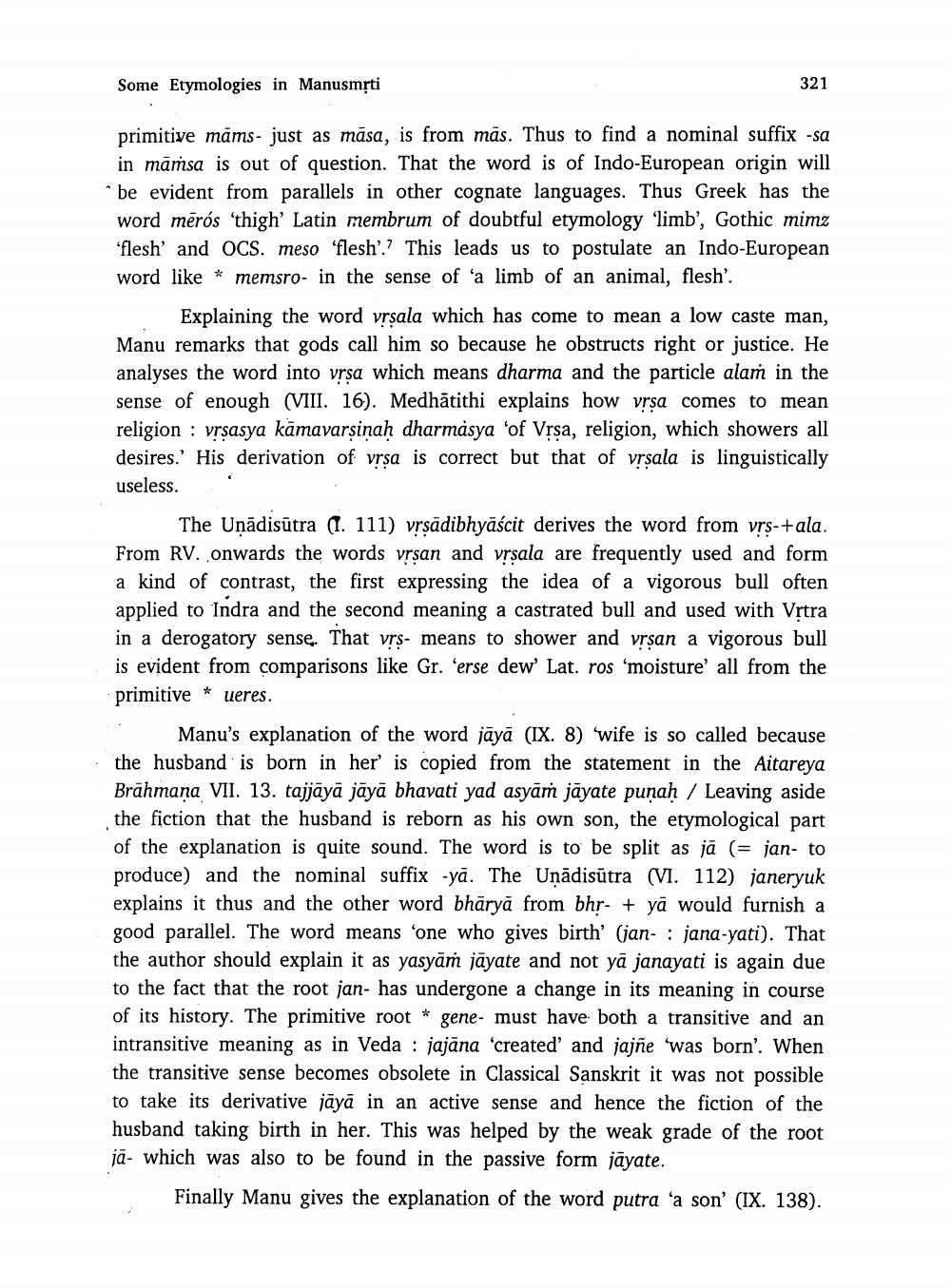________________
Some Etymologies in Manusmrti
primitive mams. just as mäsa, is from mäs. Thus to find a nominal suffix -sa in mămsa is out of question. That the word is of Indo-European origin will be evident from parallels in other cognate languages. Thus Greek has the word mérós 'thigh' Latin membrum of doubtful etymology 'limb', Gothic mimz 'flesh' and OCS. meso 'flesh'. This leads us to postulate an Indo-European word like memsro- in the sense of a limb of an animal, flesh'.
321
Explaining the word vṛṣala which has come to mean a low caste man, Manu remarks that gods call him so because he obstructs right or justice. He analyses the word into vṛşa which means dharma and the particle alam in the sense of enough (VIII. 16). Medhätithi explains how vṛsa comes to mean religion vṛṣasya kamavarṣinaḥ dharmasya 'of Vṛşa, religion, which showers all desires. His derivation of vrsa is correct but that of vrsala is linguistically
useless.
The Uṇādisūtra (1. 111) vṛṣādībhyāścit derives the word from vṛs-+ala. From RV. onwards the words vṛṣan and vṛṣala are frequently used and form a kind of contrast, the first expressing the idea of a vigorous bull often applied to Indra and the second meaning a castrated bull and used with Vṛtra in a derogatory sense. That vrs- means to shower and vṛsan a vigorous bull is evident from comparisons like Gr. 'erse dew' Lat. ros 'moisture' all from the primitive ueres.
Manu's explanation of the word jāyā (IX. 8) wife is so called because the husband is born in her' is copied from the statement in the Aitareya Brāhmaṇa VII. 13. tajjāyā jāyā bhavati yad asyām jāyate puṇaḥ / Leaving aside the fiction that the husband is reborn as his own son, the etymological part of the explanation is quite sound. The word is to be split as jā (= jan- to produce) and the nominal suffix -ya. The Unädisutra (VI. 112) janeryuk explains it thus and the other word bhäryä from bhr-+ ya would furnish a good parallel. The word means 'one who gives birth' (jan- jana-yati). That the author should explain it as yasyam jāyate and not ya janayati is again due to the fact that the root jan- has undergone a change in its meaning in course of its history. The primitive root gene- must have both a transitive and an intransitive meaning as in Veda jajäna 'created' and jajñe 'was born'. When the transitive sense becomes obsolete in Classical Sanskrit it was not possible to take its derivative jäyä in an active sense and hence the fiction of the husband taking birth in her. This was helped by the weak grade of the root ja- which was also to be found in the passive form jayate.
Finally Manu gives the explanation of the word putra 'a son' (IX. 138).
*




